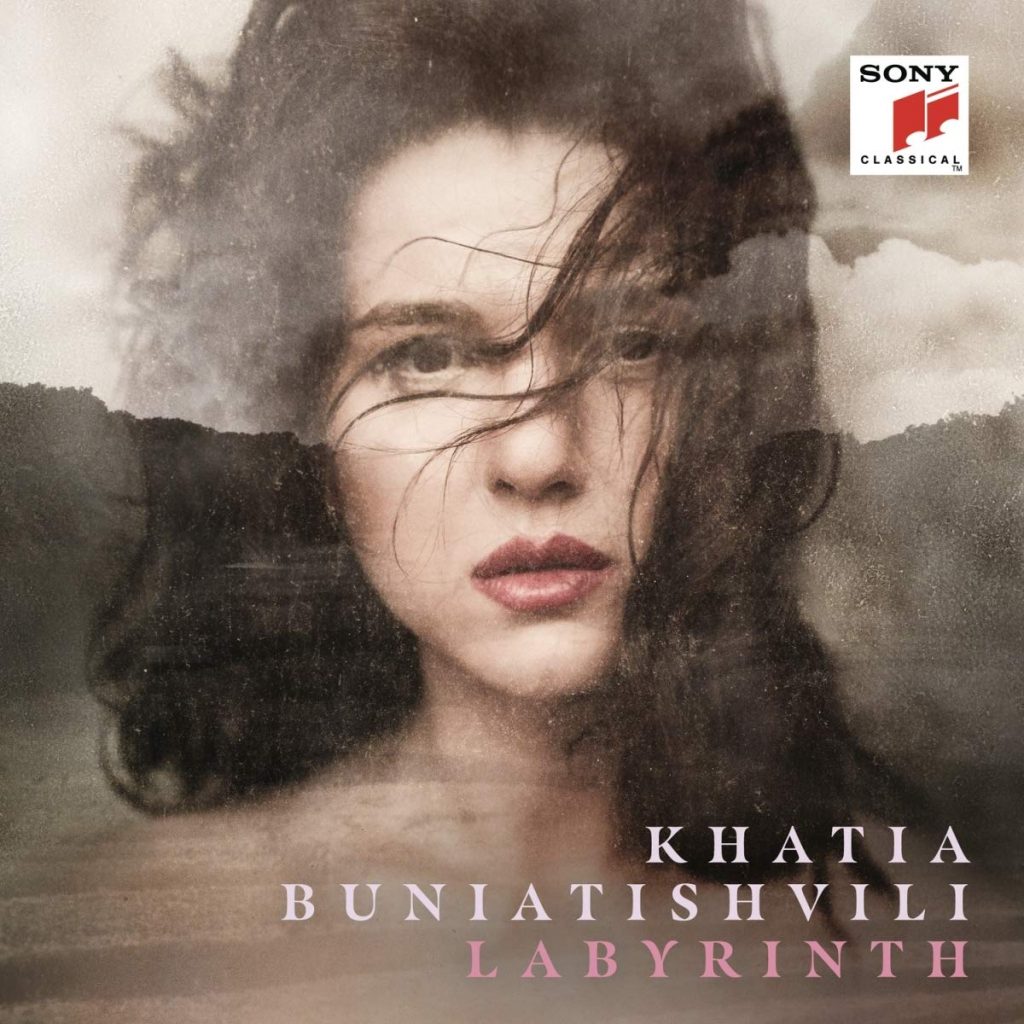LABYRINTH – KHATIA BUNIATISHVILI
Mark Jordan, October 2020
Georgian-born pianist Khatia Buniatishvili has just released Labyrinth, her latest album, under Sony Classical label. In the words of the same interpreter, this work is a love letter conceived for her listeners, a highly personal album. With this album – “the most personal of all,” she says – Khatia Buniatishvili interweaves genres and centuries.
Recorded at the Grande Salle Pierre Boulez at the Philharmonie de Paris, the album is very unique and particular drawing on the evocative language of composers from Scarlatti to Morricone and from Bach to Glass. The labyrinth, says the Franco-Georgian pianist, is: “our destiny and our creation; our impasse and our liberation; the polyphony of life, of the senses, of awakened dreams and of the neglected present; unexpected turns and expectations of the said or the unspoken … The labyrinth of our mind.”
Khatia Buniatishvili is a unique artist in the classical music world, a pianist with an almost incomparable performing elegance and a movie director’s ear for attention and narration. And her new recording is a concept album as uncomon, moving and profund as the pianist herself. Labyrinth explores human lifeboundless quest. Through the eyes of a wise woman, it sets a cinematic ride over hesitation, nostalgia, sensuality, pleasure, and pain.
Showing a relentless attitude, Khatia draw on her extraordinary piano playing in a very particular journey through the entire repertoire that she has performed up to the date. The album contains film music by Ennio Morricone (Debora´s theme from “Once Upon a Time in America”), Philip Glass (from “The Hours”) piano pictures by Erik Satie and Serge Gainsbourg and a Latin American dance by Heitor Villa-Lobos Estonian prayer by Arvo Pärt. Amonng many other pieces some of them were arranged by Khatia Buniatishvili herself such as Bach’s “Badinerie” for piano four hands and “Sicilienne” BWV 596 based on Vivaldi’s D minor concerto RV 565.
Because so-called classical music, “it is that which has crossed the ages and continues to moves us with its universality”, sums up the Franco-Georgian pianist, keeping it simple. The program, which ranges from baroque to film music, is very puzzling but it is also an interesting invitation to break the codes. Which suits her pretty well. Because Khatia Buniatishvili does not please everyone. She knows it and assumes it.
When listening, you find yourself inmerse in another dimension, in a magical mix, a labyrinth of music full of new unexpected twists. It is without a doubt a unique and personal CD, which might not be well accepted and loved by everybody.
The best thing about Khatia is that her sound, as she did in Motherland, gives unity to the whole concept, knowing that from the first to the last note, the artist has put her stamp on each interpretation.

